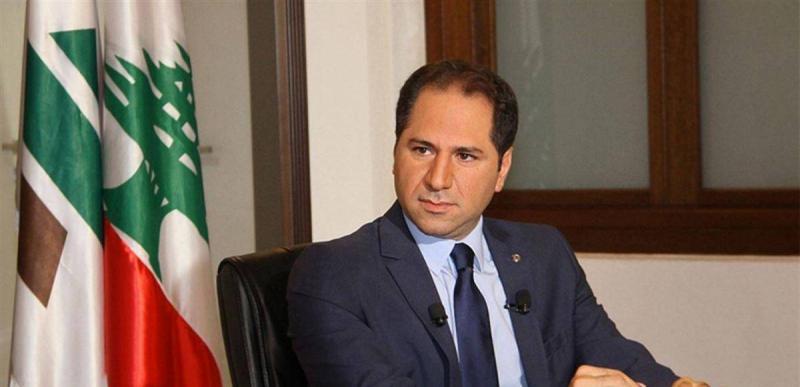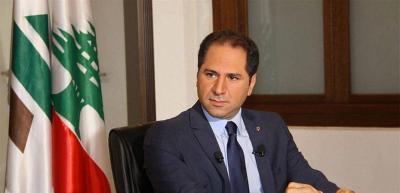Lebanese Kataeb Party leader, MP Sami Gemayel, emphasized that the most important step today is to close the southern front so that Lebanon can focus on its country, economy, hospitals, and education, and return to being the most beautiful and richest country in the world as it was before the decision to turn it into a permanent confrontation front. Gemayel confirmed that once the ongoing war ends, regardless of the outcomes, there should be a candid session among the Lebanese to think about solutions for all issues without excluding anyone or inciting wars, so that everyone can regain their rights, insisting that freedom, dignity, and land should not be bargained on.
The Kataeb leader addressed the international community leading the negotiations, stating: "We refuse for negotiations to be limited to Hezbollah and Israel, discussing what satisfies both parties to stop the fighting while the Lebanese people are sidelined." He called for placing Lebanon’s interest on the table, asserting that the opposition is ready to take part on behalf of the Lebanese people, considering that Resolution 1701, which prevents dragging Lebanon into war, is not enough. He emphasized that Resolution 1559 should be implemented in parallel to disarm armed militias, which is more crucial than the first resolution that, if applied, would have negated the need for new resolutions. He also noted that anyone wishing to loan Hezbollah and Israel should do so from their own pocket and not from the pockets of the Lebanese people.
Gemayel was speaking during a meeting with a large delegation from the Kataeb region of Zahle, who visited him at his headquarters in Bakfaya, including section leaders, their executive committees, and a group of Kataeb members and friends. He pointed out that the country faces numerous challenges at various levels, but these are easily solvable given that Lebanon is a small country but still rich in natural and human resources, and can return to its prosperity, provided it liberates itself from Hezbollah, which opposes the establishment of the state and seizes our decisions and future, which we must reclaim to address our problems.
He indicated that Hezbollah is the one obstructing the election of a president by disrupting the quorum of sessions and communicating with Speaker Nabih Berri to avoid calling for electoral sessions, refusing to agree with others on a widely accepted moderate candidate, and insisting on imposing the president it desires to maintain its grip on the country while sidelining the head of the pyramid. In the event negotiations occur after the war, that person will represent Lebanon and the interests of the Lebanese, which Hezbollah does not want, as it aims to conduct negotiations suited to its and Iran's interests.
The Kataeb leader mentioned that efforts today are focused on finding a definitive solution for the country and moving out of the temporary situation we live in, building a state with everyone who believes in this country and wants to live in a civilized nation from all sects. He rejected the notion of making Lebanese citizens' concern securing another passport in case of something happening in Lebanon, passing these anxieties onto future generations through small, circumstantial settlements, calling for unity and the abandonment of selfishness with a focus on common interest.
He stated that he is not against compensating the victims of the war in the south and those affected, provided the same treatment is applied to the martyrs of the Lebanese resistance, rejecting the idea that there be first-class martyrs and others of second-class status, some recognized by the Lebanese state and others not. He demanded recognition of the martyrs who fell defending their homeland and villages from the Lebanese resistance, asserting that we do not need compensation.
The president of the Kataeb region of Zahle, Wissam Tohme, also spoke, thanking the party leader for his uncompromising patriotic stances without self-interest, affirming that Zahle is loyal and when it thrives, the Kataeb and Lebanon thrive in return. After the meeting, the delegation visited the Independence Museum in Harat Sakher, where they toured and listened to explanations from the museum's director, Joey Hamzi.




